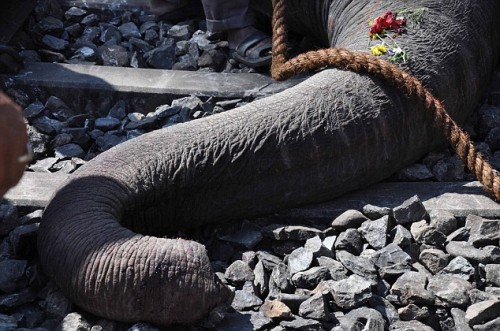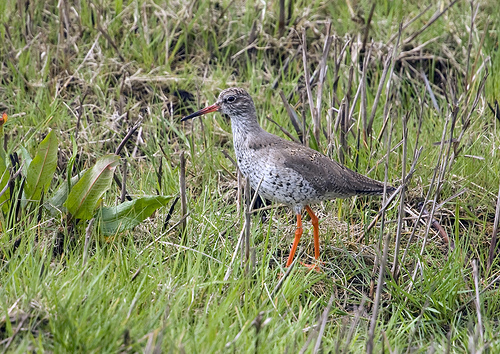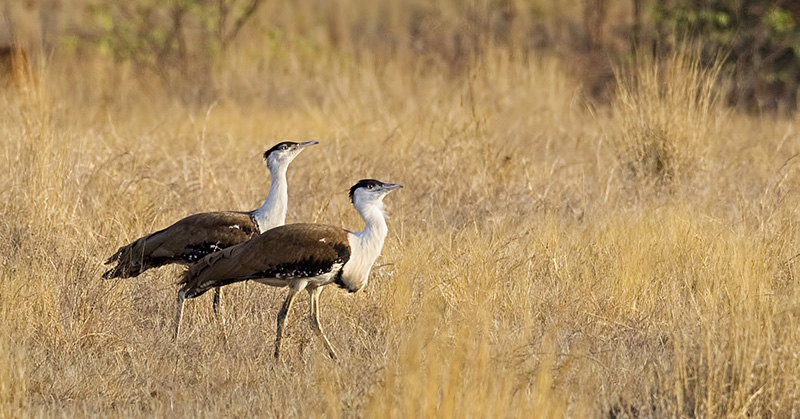These are trying times for elephants of West Bengal. Two members of the species lost their lives in two separate incidents last month. While one jumbo became victim of a poaching incident, a train accident led to the loss of another’s life.
Victim of Poaching
As the outcome of a gruesome poaching incident, the carcass of a fully-grown elephant was found with its head severed, on the outskirts of the Neora Valley National Park, in the Kalimpong subdivision. The trunk had also been severed and left alongside the body of the hapless pachyderm. The discovery was made by forest officials patrolling the Sakham area in Kalimpong subdivision.
This is the third incidence of elephant poaching in the northern part of West Bengal this year. The first one was in February; poached at the Panibari range in Buxa Tiger Reserve. The second elephant succumbed in April in the south Raidak range to a poison pellet shot into its body.
The autopsy report on the elephant carcass found recently reveals that the animal was shot at and the bullet injuries caused death. It is evident from the way the animal was butchered that the elephant was killed for its tusks. Ivory trade fetches extremely high returns in the illegal international trade market.
Chief Wildlife warden N C Bahuguna opines that the elephant could have been a victim of crossfire on the Assam border owing to Bodoland issues or of shooting in Nepal and subsequently tracked down by poachers who cut off the head for the tusks.
He said,” The elephant might have got trapped in crossfire on the Assam border where there is a tension over the Bodoland. We suspect that the poachers tracked it at Sakham and chopped off its head for the tusks,”
Conservationists believe, it is the shortage of forest guards which has been the main reason for the incident. In Bengal, where the number of sanctioned posts for forest guards is 2444, the actual present strength is only 1573, implying that the department is short-staffed by 36 %. This is further compounded by the fact that many of these guards are on leave owing to the festive season. The poachers have clearly used this to their advantage.
“We believe that a large team of poachers is active in north Bengal and is assisted by the outsiders. There have been cases of poaching in Buxa in the recent past. But due to staff shortage, the department has not been able to beef up the vigil,” said Animesh Basu, coordinator of Himalayan Nature and Adventure Foundation and a member of the state wildlife advisory board.
The forest officials however are of the view that the poachers were rhino hunters who had moved in from Assam now that the security at all the rhino parks had been stepped up by the Assam Government following a number of incidents of rhino poaching.
The officials have taken serious note of the elephant killing and have sprung into action.
“We have started a probe and are hopeful of nabbing the miscreants soon,” Bahuguna said. “We are not sure whether the elephant was shot on the Assam border where the Bodos are reportedly targeting elephants or in Nepal where elephants are often targeted whenever it depredates into the country. It can be such that the tusker was shot at in Assam or Nepal and poachers tracked the animal at Sakham and chopped off its head for the tusks,” said NC Bahuguna, principal chief conservator of forests, wild life.
Mowed down by speeding train
Close on the heels of this poaching, a male elephant was knocked down by a speeding train in the same district in the Mahananda Wildlife Sanctuary the very next day.
“The incident happened Friday morning. There is a need to further restrict the speed limit of the trains on the Siliguri-Alipurduar stretch. We are discussing on lowering the speed limit to below 25 km,” said Chief Wildlife Warden N.C.Bahuguna.
Nearly 40 elephants have been killed since 2004 by speeding trains when the tracks on the 163-km long Siliguri-Alipurduar route were converted to broad gauge.
Threats and Solutions
Elephants the world over are threatened due to poaching, habitat loss and human encroachment. The Asian elephant is an Endangered animal as per the IUCN Red List of Threatened Species.
There is an urgent need to increase awareness about the conservation status of elephants and illegal trade of ivory. Measures need to be taken to denounce this practice and publicly shame the poachers and illegal traders. Railway accidents too can be checked if only guards are deployed at crucial elephant corridors to warn of the approaching herd to the engine drivers.
These large lovable and majestic animals deserve every bit of our effort to save each one of them from their untimely deaths.
More Related Stories,
Captive Elephants now Available for Hire!
Life Threatening Railway Tracks
Baby Elephant Rescued from a Well











Sad to see gentle jumbos are being killed and govt is not doing enough to save our precious wild life. This country is blessed with wildlife and beautiful forests by mother nature, we people are burning it dead!! Thanks for the post!!Keep up the good work!! Articles like this will inspire many people!
Thank you for your concern Faraha. The latest news is that the Supreme Court has ordered the railways to ensure the safety of the jumbos and has asked them to lower the speed of trains plying in elephant corridors. Let us hope that this is the last of such incidences we get to hear.